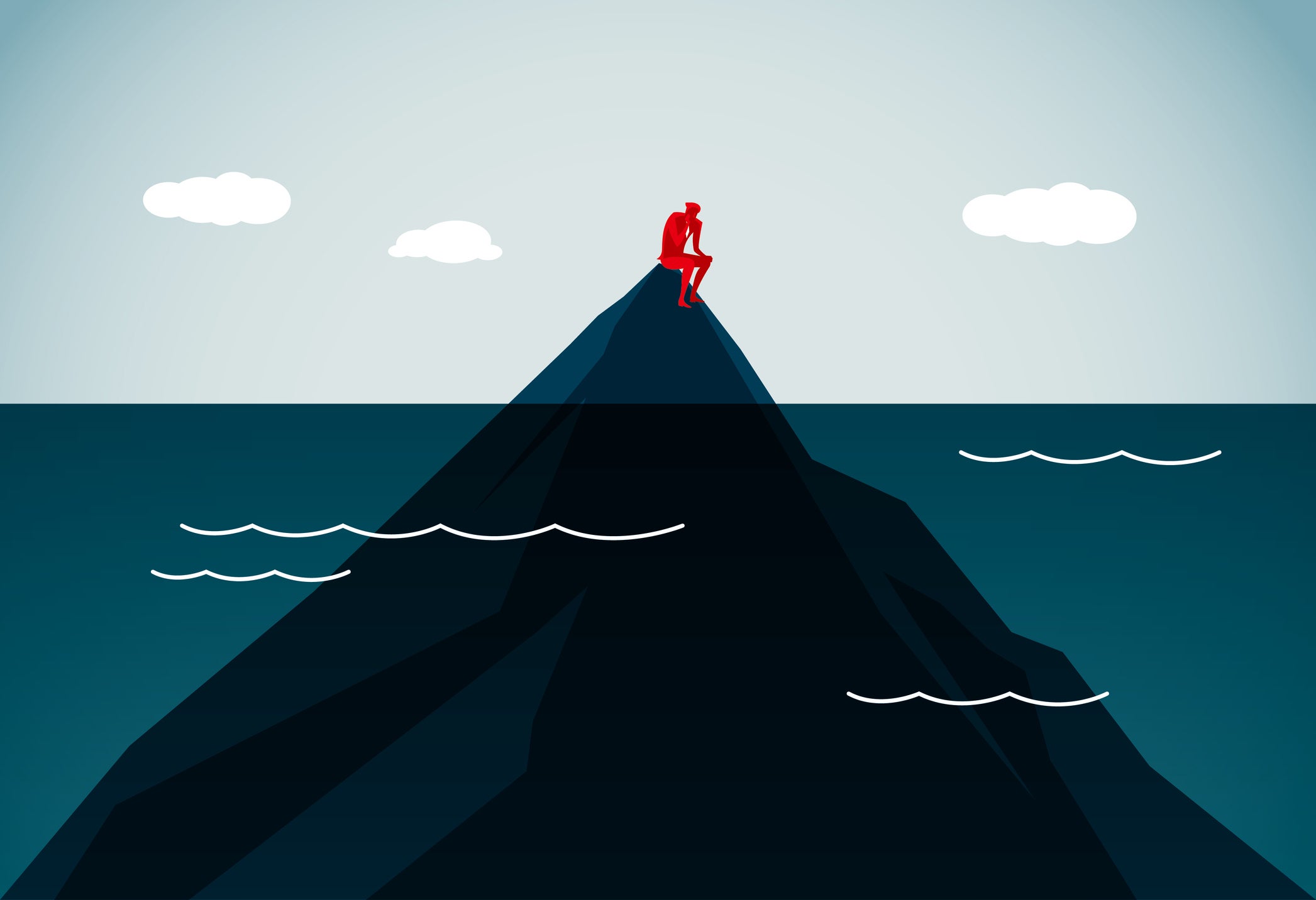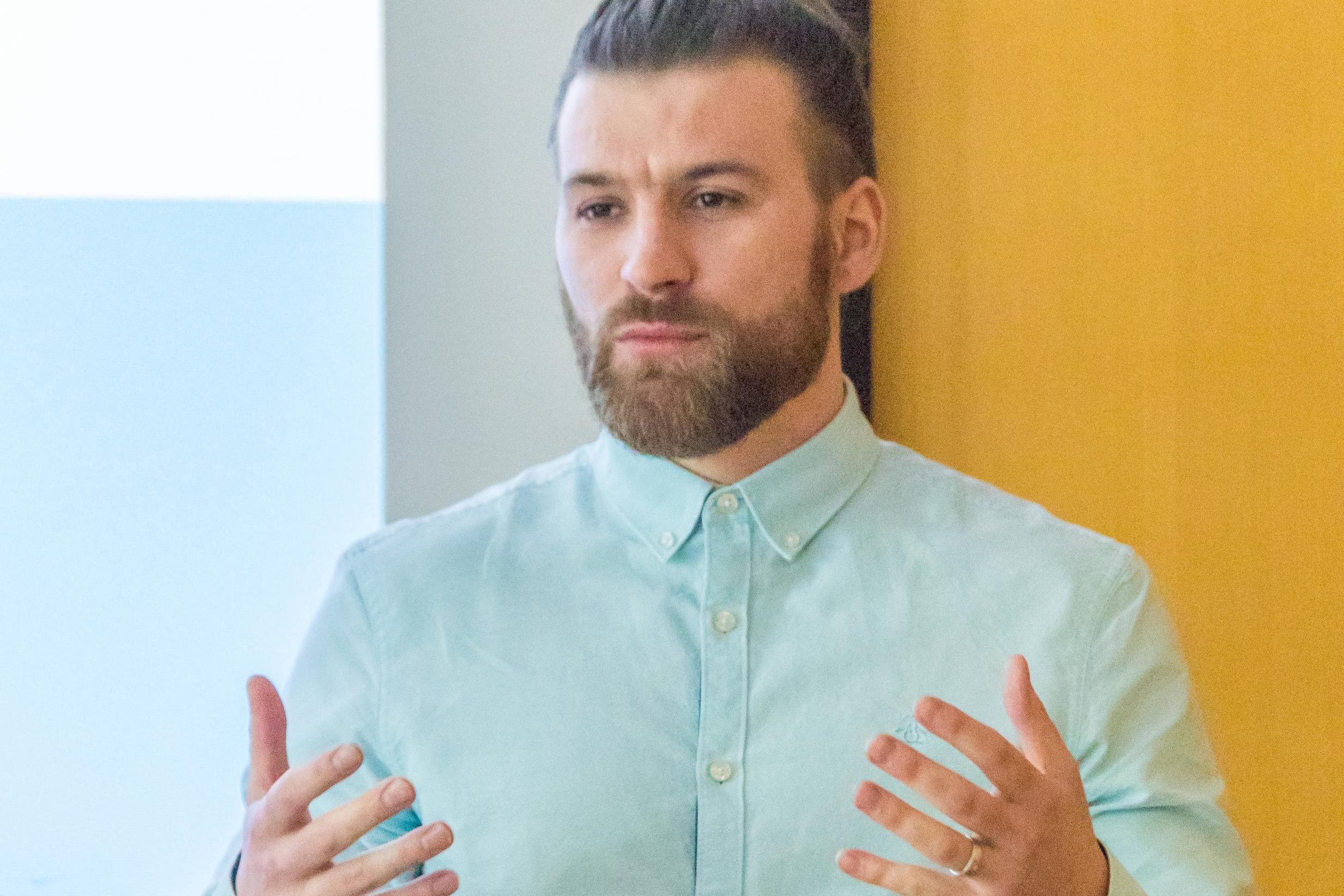‘I was drinking daily, £17,000 in debt, and having suicidal thoughts. Then I started talking’
After a lifetime of suffering from anxiety and depression, Josh Connolly liberated himself from the unrealistic demands of toxic masculinity. Here, he tells Harriet Hall his story, as the Samaritans launch their new campaign Real People, Real Stories


Your support helps us to tell the story
From reproductive rights to climate change to Big Tech, The Independent is on the ground when the story is developing. Whether it's investigating the financials of Elon Musk's pro-Trump PAC or producing our latest documentary, 'The A Word', which shines a light on the American women fighting for reproductive rights, we know how important it is to parse out the facts from the messaging.
At such a critical moment in US history, we need reporters on the ground. Your donation allows us to keep sending journalists to speak to both sides of the story.
The Independent is trusted by Americans across the entire political spectrum. And unlike many other quality news outlets, we choose not to lock Americans out of our reporting and analysis with paywalls. We believe quality journalism should be available to everyone, paid for by those who can afford it.
Your support makes all the difference.The 13th May 2012 was the final day of the Premier League. As usual I was in the pub and I watched as Sergio Aguero scored the winning goal for Manchester City seconds before the final whistle blew. It was the most extraordinary moment in premier league history. The pub exploded. But as people around me celebrated, jumping up and down and hugging each other, I just sat there thinking that I didn’t feel connected to any of it.
I’ll never forget that moment – that’s when I decided to make a change.
I was nine years old when my father died from alcoholism. At his funeral, people told me to “be brave for your mum”. It made sense to me then – I could see how much she was struggling, and I didn’t want to be a burden. But despite people’s well-meaning intentions, the phrase, “be brave for your mum,” stayed with me for years and it impacted me in a massive way. After that, I buried my emotions. I was naturally sensitive, but I had come to believe that sensitivity was a weakness. I felt angry all the time.
I began using drugs and alcohol when I was 12. That’s when I first started having suicidal thoughts. I was so young I didn’t recognise them as such but checking out of life felt like a valid option – and that’s what I wanted to do, check out.
By the time I was 17, I had left school and was drinking daily to escape my emotions. By 18, I became a father. At that age, it was really easy to disguise my drinking as being a party animal. People thought I was this happy-go-lucky guy who everyone wanted to hang out with at weekends. Friends would tell me I was brilliant, but when normal life resumed on a Monday morning, I felt extremely alone, and a dark depression clouded over me.
I was a functioning alcoholic by the age of 24. I had four children and a wife, held down a job, owned my own home and was working hard. I was doing what I thought a man was supposed to: showing up, earning the money, paying the bills. As far as I was concerned, I was entitled to the chance to blow off steam at the weekend because I earned the money.
But it all unravelled. Soon I was £17,000 in debt, living on a fold-out bed in my mum’s living room and going to the pub every night to suppress my emotions. When I saw my children, I’d be desperately overwhelmed and feel incapable of looking after them. Thoughts of not wanting to be around anymore entered my mind with increasing frequency.

One night I got talking to the landlord of my local pub and he told me all about his struggles with gambling and mental health. It was then that I started to realise that, just like his gambling, my drinking was a destructive attempt to self-medicate. On the night Man City won the Premier League, he suggested I stop drinking. The next day he took me to a 12-step fellowship meeting. I haven’t touched drugs or alcohol since.
But my real struggle was only just beginning. Without the ability to block everything out, my emotions took over. I decided to take my own life. That day I went to see my children for what I thought would be the last time and something inside me clicked.
At my lowest ebb I decided to start talking about my feelings. I realised that I’d spent my whole life feeling different from other people, but it hadn’t occurred to me that it could be something to do with my mental health and that what I was struggling with could make sense based on my childhood traumas and experience.
The things you think keep you alone in this life are actually the things that will attach you to more people than you can ever imagine
It took me a while before I opened up to my family about how I had been feeling, but the simple act of vocalising my emotions helped me being to acknowledge and deal with them.
Once I started sharing my experiences with people, far from isolating me, it helped me feel less alone. I started to understand that I didn’t have anger issues at all; I was struggling with anxiety and depression. I started to be able to communicate my feelings and my moods. The more I spoke, the more people came out of the woodwork to speak to me and reveal they had felt similar things.
I know what it feels like to reach rock bottom. To anyone feeling the same I would tell them that the first thing to do is talk to someone. Because the things you think keep you alone in this life are actually the things that will attach you to more people than you can ever imagine. If you can make that step to talk to someone, it’s been a successful day.
I realise now that a lot of my issues came from not feeling like I should express my emotions. I’ve always been a sensitive person who gets easily overwhelmed but growing up the thought of admitting I was sensitive like something to be ashamed of. I had felt like being emotional made me incapable of being what a ‘man’ was supposed to be. Now I realise that sensitivity is a strength.
The stereotypes of masculinity – that boys should learn to toughen up and be strong – caused huge problems for me. I won’t have the same happen to my sons. I speak very openly with them about my feelings and I let them know that their full range of emotions is completely acceptable. You don’t get to choose how you feel but you can have some choice in what you do with those feelings.
I'm 33 now, and I still have anxiety, I still have days when I struggle, but now I know how to manage it. And all that is borne out of the initial moment I reached out for help.
As told to Harriet Hall
Josh Connolly is part of Samaritans’ Real People, Real Stories, a campaign that sees men share their stories of how they have overcome difficult times, to inspire and encourage others to reach out for help.
Anyone can talk to Samaritans for free on 116 123 or visit samaritans.org for online self-help tools and information.
Join our commenting forum
Join thought-provoking conversations, follow other Independent readers and see their replies
Comments